-
•
•
3 responses
Previously appearing on Times and Seasons: Part I: A tentative theory – the copyists for the printer’s manuscript didn’t work quickly enough * * * One important question for this scenario is: Why did the copyists do that part of P that they supposedly fell behind in producing? Read More
-
•
•
35 responses
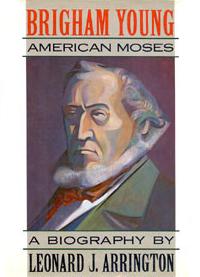
Often I find that I am annoyed with the focus of much of Mormon History studies today. The articles and books published seem to mostly cover the Joseph Smith and Brigham Young eras, along with a bit of the later Utah period, up to the turn of the century. At least, that is my perception. Read More
-
•
•
16 responses
Visiting hours ended at 8:30. I hugged my son goodbye and headed out of the adolescent unit, pausing at the locked exit for an attendant to buzz me through. Ben had been at the neuropsychiatric institute for nearly a week, following an acute mental health crisis. We visited him every day—either me or my husband or both of us. Tonight I was alone. Which meant that I was quiet as I took the elevator to the main floor and navigated the maze of hallways toward the main entrance—quiet enough to hear the crying woman before I could see her. Read More
-
•
•
4 responses
Royal Skousen is editor of the Book of Mormon Critical Text Project and professor of linguistics and English language at Brigham Young University. Part I: A tentative theory Physical evidence from the Book of Mormon manuscripts shows that the compositor (that is, the typesetter) for the 1830 edition normally used the printer’s manuscript to set the type for the first edition of the Book of Mormon. The printer’s manuscript (P) was the copy of the dictated or original manuscript (O) that the scribes made and took to E. B. Grandin’s print shop in Palmyra, New York. But for one sixth… Read More
-
•
•
20 responses
In the fourth chapter of The Attributes of God, Ostler does both a nice bit of analysis and a nice bit of synthesis. Ostler’s Analytic Gesture Through engagements with a handful of potential philosophical pitfalls, Ostler constructs a very nice analytic definition of omnipotence, stated thus on page 116: A is omnipotent at [time] t if A is able unilaterally to bring any logically possible state of affairs SA after t which (i) does not entail that “A does not bring about SA at t,” and (ii) is compossible with all events which preceded t in time in the actual… Read More
-
•
•
2 responses
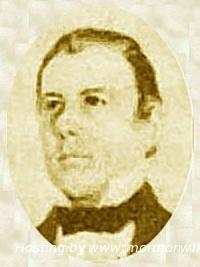
Scripture is often repeated in scripture, and poets have rarely been shy about re-using lines of poetry, often without attribution. Plagiarism is everywhere, and our view of it as a faux pas is really relatively recent—this view is certainly more recent than the mid 19th century, when Mormon newspapers started churning out poetry and other forms of Mormon literature. The 9th Book of Mormon lesson is also about repeated scripture, specifically Nephi’s use of the early chapters of Isaiah which seem to make up the bulk of 2nd Nephi. Perhaps Nephi served as an example for the poetry I’ve chosen… Read More
-
•
•
10 responses
-
•
•
12 responses

In 1609, Johannes Uber published the first part of his Very Useful and Necessary Disputation Concerning the Holy Bible (Von der heiligen Bibel sehr nützliche und nötige Disputation, VD17 1:050537Y) in which he argued for two points. First, that the Bible was no longer whole “because of the many lost holy books that the holy prophets and apostles wrote and referred to in their writings”; and second, that therefore those who leave the Catholic Church and rely only on the Bible cannot find salvation. Read More
-
•
•
21 responses
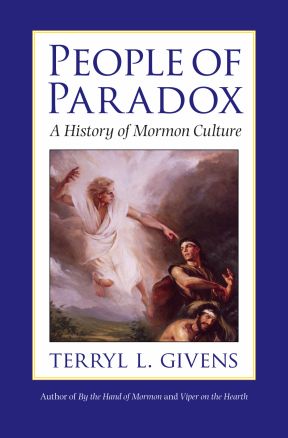
Terryl Givens’ recently wrote about the American compromise with Mormonism, whereby Mormons agreed not to be so radical as to entirely alienate themselves from American society (i.e., ditch polygamy and our lovely Deseret) in exchange for the U.S. ceasing its explicit campaign to eradicate us. He describes the unwritten contours of that compromise as consisting in a willingness to accept and even promote the various cultural achievements of Mormonism (e.g., our choir, football, family focus), while agreeing to shelve any serious engagement with our theology. One can hear the variation on a popular General Conference theme when he writes: “In opting to… Read More
-
•
•
39 responses

In House of Prayer No. 2, Mark Richard relates the hip surgery he had in the sixties as a boy. He didn’t understand much about what was happening. His parents checked him into the hospital and then he was pretty much on his own. Read More
-
•
•
111 responses
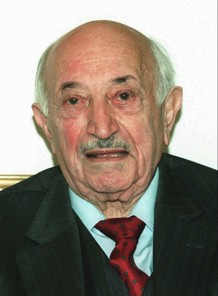
I was a little annoyed to hear it on the radio again yesterday. The Church was apologizing because apparently over-enthusiastic members had performed temple ordinances for recently-departed Jews, AGAIN! This time the situation was particularly egregious because the Jews involved are the parents of the late Nazi-hunter and war-crimes expert Simon Wiesenthal. Can those who keep submitting these names stop already? Read More
-
•
•
6 responses

Tomorrow morning, a bunch of Provoans (and presumably others) will wake up with a brand new ring on their left ring fingers. To all of you: congratulations and good luck! This, though, isn’t your story. Read More
-
•
•
5 responses
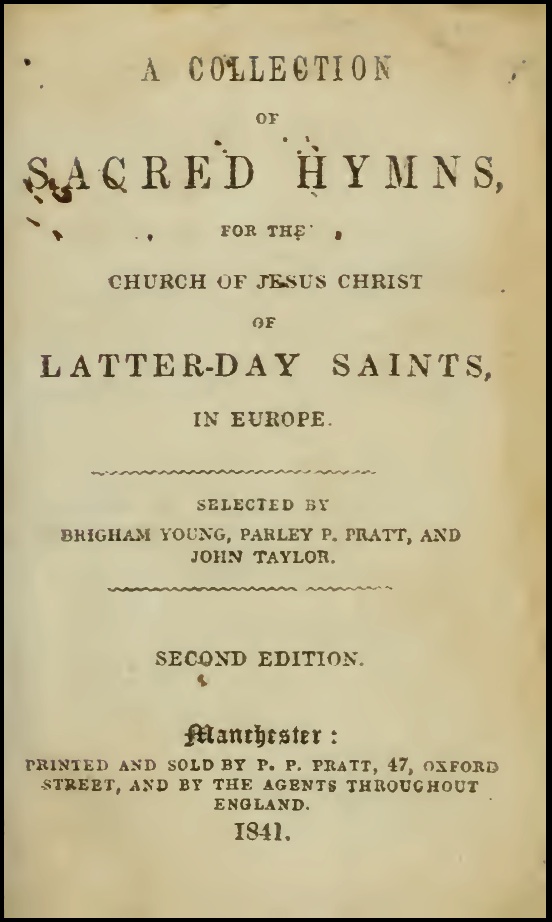
Active Mormons hear poetry about the atonement each Sunday in the sacrament hymn, so finding a poem to go with Jacob’s discourse on the atonement in 2 Nephi 9 isn’t too much of a burden. The hard part is finding something that isn’t already well known and is unique to Mormonism, which I’ve generally tried to do in this series. There are 28 sacrament hymns in the current hymnal, most of which are probably familiar. However, there have been a number of other sacrament hymns that are no longer in our current hymnal. Most of those are not by Mormons.… Read More
-
•
•
-
•
•
13 responses
(Corrected!) I hope it’s not too late to post this, and equally that it will still be useful in this quick and dirty form. Though long, I’ve included the scriptural passages for quick skimming, since I doubt they’re familiar. We’re familiar with blessings in the Church- patriarchal blessings, blessings on the food, blessings of health, etc. But blessings have a counter-part that Israelites were just as familiar with and we have no background for: cursings. I wanted to write a typology of curses for my dissertation, but it turned out my advisor’s advisor (three generations of UChicago!) had already done… Read More
-
•
•
19 responses

The children of Israel are stiff-necked and hard-hearted. God sends serpents to bite them. Then he says the only way to be healed is to look at a serpent held up on a pole. This is kind of like reading theology. Read More
-
•
•
9 responses
I know as soon as you hear the phrase “cedars of Lebanon,” your eyes glaze over. Read More
-
•
•
2 responses
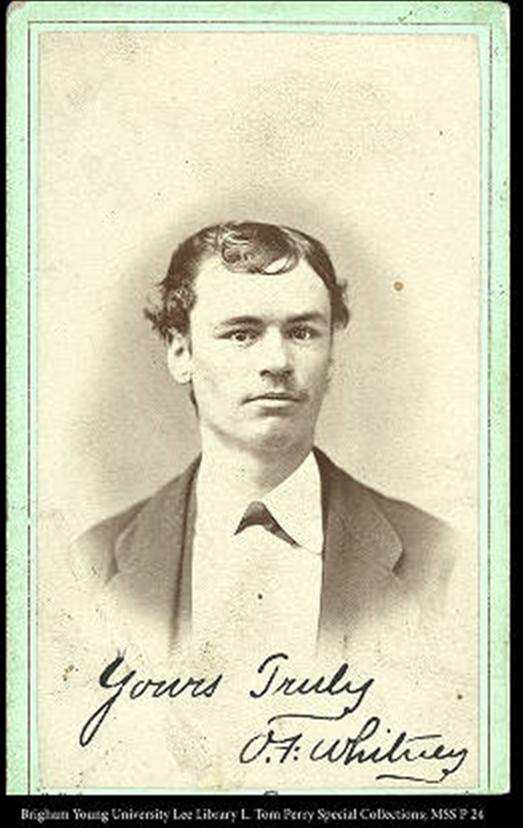
Lehi’s final counsel in the Book of Mormon is to his son Joseph makes an interesting literary link between Joseph in Egypt, Joseph the son of Lehi and Joseph Smith, Jr. But, LDS authors have largely ignored this link, especially before 1900, when any mention of Joseph was usually a reference to Joseph Smith, Jr. But I did manage to find an exception in Orson F. Whitney’s epic, Elias. As far as I can tell, other than general righteousness, the only real link between these three is that they happen to have the same name. Their histories aren’t really comparable… Read More
-
•
•
58 responses
What role do apostasy narratives play in Mormon theological discourse? Actually, let me ask that question more clearly, since I’m after something pre- rather than de-scriptive: What role should apostasy narratives play in Mormon theological discourse? A long and venerable tradition has given such narratives theological pride of place, but I want to ask whether that tradition has not generally seen Mormon thinkers wandering in theologically unproductive paths. Is there reason to be done, once and for all, with apostasy narratives in our theological work? Read More
-
•
•
50 responses

I have seen several notices publicizing an upcoming conference at BYU, Exploring Mormon Conceptions of the Apostasy. Sounds interesting, particularly in light of the one-paragraph blurb stating goals for the conference, which challenges rank and file members of the Church as well as scholars to reconsider LDS views of “the Great Apostasy”: Examining claims of historical apostasy is a pertinent task for members of The Church of Jesus Christ of Latter-day Saints. For the last hundred years, the Great Apostasy narrative has shaped Latter-day Saint historical assumptions, contributed to the construction of Latter-day Saint social and theological identity, and impacted… Read More
-
•
•
21 responses
Last Friday McKay Coppins, in an article titled Mitt’s Mormon Army: How It Works, looked at how grassroots Mormon support for Mitt Romney has managed to organize, despite the Church’s statements that its resources should not be used for election campaigns. Coppins points out, as most LDS Church members already know, that not everyone respects the Church’s wishes. Read More
-
•
•
13 responses
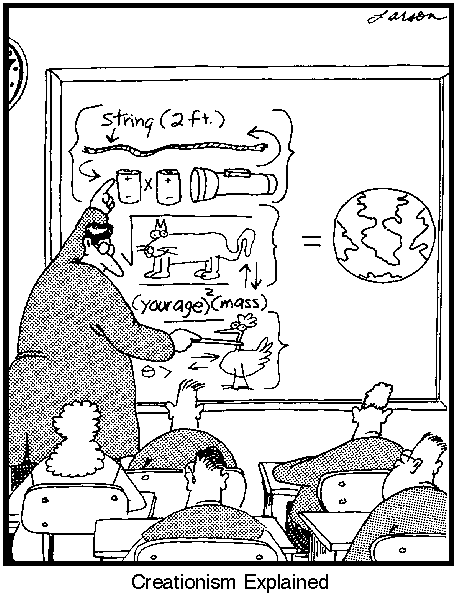
This week, we continued talking about Enuma Eliš and Genesis 1, beginning with a review of some of the similarities we talked about last week. Similarities– 1) Opens with temporal clause. 2) pre-creation darkness 3) precreation cosmic waters 4) wind/spirit 5) division of the waters to create space for human existence 6) a solid “roof” created to restrain the cosmic waters from reentering that space. There are also stark differences, which generally fall under the category of semi-polemical monotheistic reinterpretation. That is, while Genesis shares with Mesopotamia (as well as all the other ancient Near Eastern cultures we know of) a… Read More
-
•
•
2 responses
-
•
•
16 responses
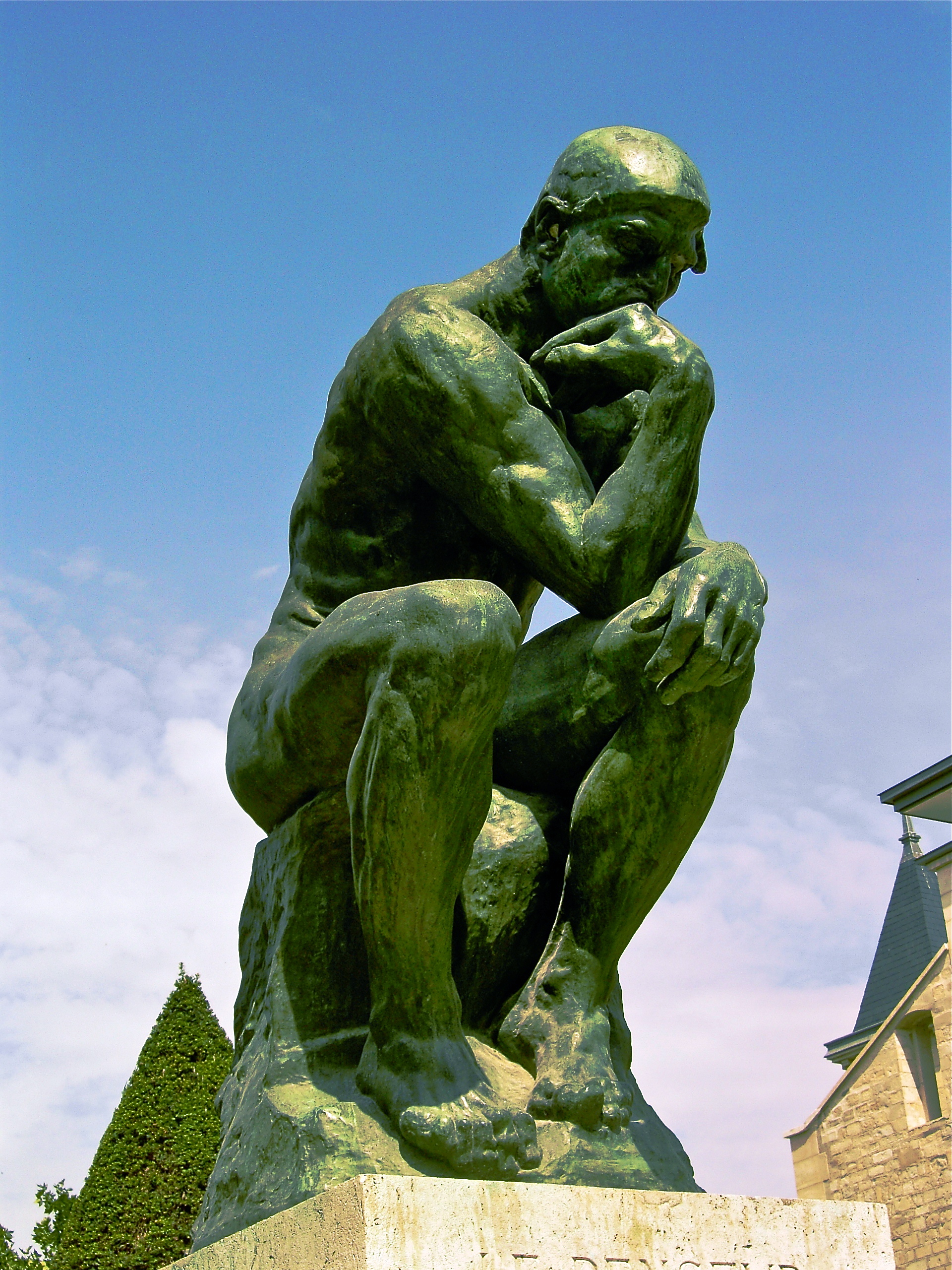
We recently had a teacher training workshop in our ward. There was a good turn out with lots of very positive contributions and an overall great discussion. For my own part I talked about the use of questions as a teacher. I’m sharing what I prepared since it may be useful for some of you, but even moreso because I’m interested in your feedback. Do you take issue with any of my points about the use of questions? Are there other reasons or ways we ought to use questions in a Sunday (or in our case, Friday) School setting? ******… Read More
-
•
•
15 responses

Fourth and last in a series of essays about female identity. Previous posts explored this theme in the contexts of air, water, and earth. It was snowing when I drove to the hospital, and it wouldn’t be daylight for another hour at least. The only person in the lobby was the woman at the information desk. She directed me to the laboratory down the hall, where I handed over my paperwork and sat down in the empty waiting room. On the wall-mounted TV, a news reporter announced that an escaped convict had been captured. He’d broken out of federal prison… Read More
-
•
•
7 responses

This is the fourth in a series of posts taking a broad look at the Book of Mormon. This post continues the discussion of the prior post, The Book of Mormon as Narrative, by considering verisimilitude. This term refers to how faithfully a text represents the real world or, to various degrees, depicts events that do not conform to the readers’ view of the real world. First, a tighter definition of verisimilitude [Note 1]: The semblance of truth or reality in literary works; or the literary principle that requires a consistent illusion of truth to life. The term covers both… Read More
-
•
•
3 responses
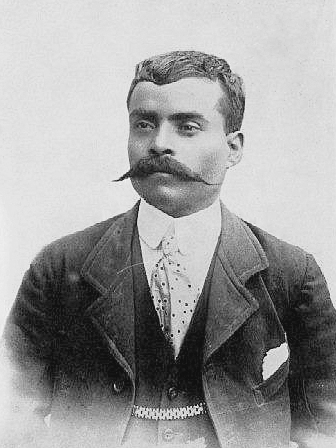
I returned yesterday from attending the 3rd annual conference of the Associação Brasileira de Estudos Mórmons (Brazilian Mormon Studies Association) inspired with the fascinating subjects covered during the conference and ready to dive into another year of research in preparation for next year’s conference. In particular, one presentation was groundbreaking, changing the perception of Mormonism in Mexico before WWII. Read More
-
•
•
10 responses
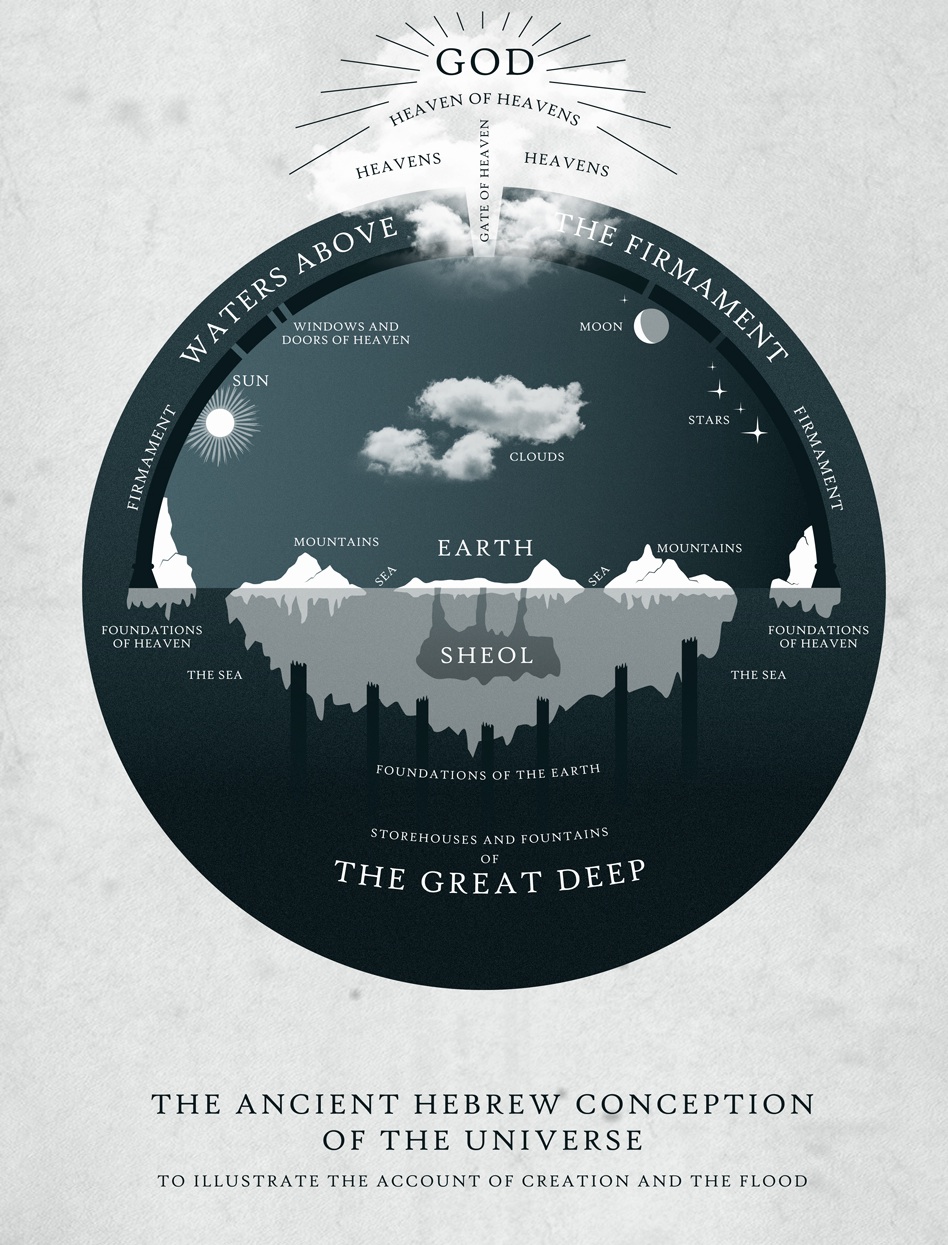
(updated!) Attendance down a little this week; I know one student had a date, the weather was poor (no one likes to travel in the rain), and so on, but I also heard that last week was too much for at least one person. But, I felt this week went quite well, and we finally got into Genesis itself. As per the syllabus, class today was divided in two parts. And due to my own schedule and time commitments this week, I’m afraid my notes here are much rougher, less complete and posted later than I’d wish. I. Tools part… Read More
-
•
•
12 responses

What’s my margin of error? Adam ± .33? Read More
-
•
•
One response
Please join us for a conference, “Exploring Mormon Conceptions of Apostasy” to be held on March 1-2, 2012 at Brigham Young University. The notion of an apostasy from the primitive gospel and the original church has been a key animating feature in Mormonism since its inception and in other “religions of the book.” However, the concept of apostasy has proven to be tremendously fluid, with individual, institutional, communal, and historical meanings and applications all proliferating in religious thought throughout the ages. Fifteen faithful Mormon scholars from many scholarly backgrounds and methodologies will explore the concept of apostasy in various historical… Read More
